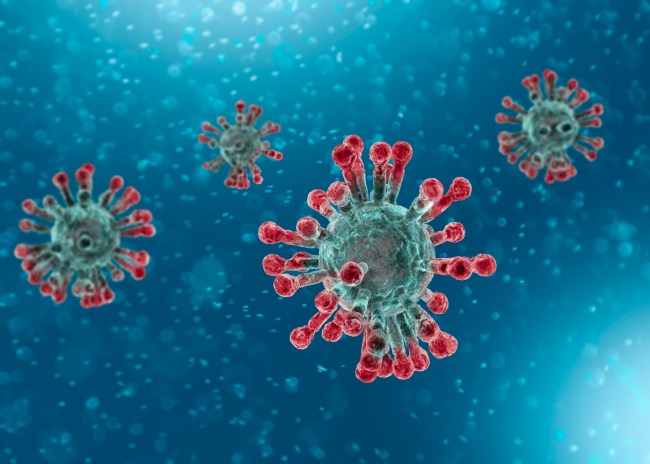
iStockphoto
It’s been a tough week. Global cases for coronavirus are now over one million. I think we could all use some good news in the fight against COVID-19 as the virus continues to wreck havoc across the world.
Two weeks ago, National Institutes of Health announced the first trial for a vaccine against coronavirus in the United States. The trial is taking place at the Kaiser Permanente Washington Health Research Institute. Meanwhile, this weekend, The Department of Health and Human Services laid out a plan how it will support drug manufacturers Moderna and Johnson & Johnson as they develop a potential vaccine.
More good news:
In a study published in the peer-review journal Lancet’s EBioMedicine, University of Pittsburgh scientists unveiled a potential vaccine and delivery method for the Coronavirus pandemic. Doctors feel like it could accelerate how the population is vaccinated against COVID-19, according to a CBS Pittsburgh report summarizing the breakthrough.
“It’s a lot like a band-aid with hundreds of small needles. In this particular case, the needles are made out of the sugar substance, and we actually incorporate the vaccine directly into the needles,” Dr. Louis Falo, of the University of Pittsburgh School, said.
The Pitt team has been working on vaccines for coronaviruses for years, including the first SARS outbreak in 2003.
Also, it’s worth noting that the University of Pittsburgh has a wonderful track record at developing lifesaving vaccines. For example: In 1955 Dr. Jonas Salk developed a successful vaccine for polio in a University of Pittsburgh laboratory. It took eight years of government-granted research in Pitt’s labs and a vaccination trial involving over one million.
A big “Hail to Pitt,” from humanity.
Researchers from @PittHealthSci tested a potential vaccine against SARS-CoV-2, which produced SARS-CoV-2 antibodies in mice at quantities thought to be sufficient for neutralizing the virus. The vaccine is delivered through a fingertip-sized patch. https://t.co/rxYKTQ8NhO pic.twitter.com/AZzrCKN9jQ
— UPMC (@UPMCnews) April 2, 2020
Let’s hope they can do it again.
This micro-needle still needs to go to clinical trials pending approval from the FDA, which could take months, but researchers are hoping the FDA fast-tracks it like it has other vaccine candidates.
“So, this is an incredibly safe approach. There is no bleeding with this approach, there’s no pain because the needles are not long enough to reach the circulation or nerves,” said Dr. Falo. “In addition to that, the amounts of antigen that we’re using are so small that they don’t cause any adverse effects, in and of themselves.”
Each of the 400 microneedles are the width of a human hair, and they are only a half a millimeter long. The whole thing is made of liquid sugar and mixed with the antigen doctors want to use in their vaccine.
“When the microneedles are hard, they’re able to penetrate the outer layers of the skin. And, then, as they absorb moisture, they actually dissolve and release the antigen into the skin, so the needles are actually the vaccine,” Dr. Falo added.
Let’s hope there’s something here, along with all the work all other scientists are pouring into vaccines against COVID-19.
No such thing as having too much hope at this point.